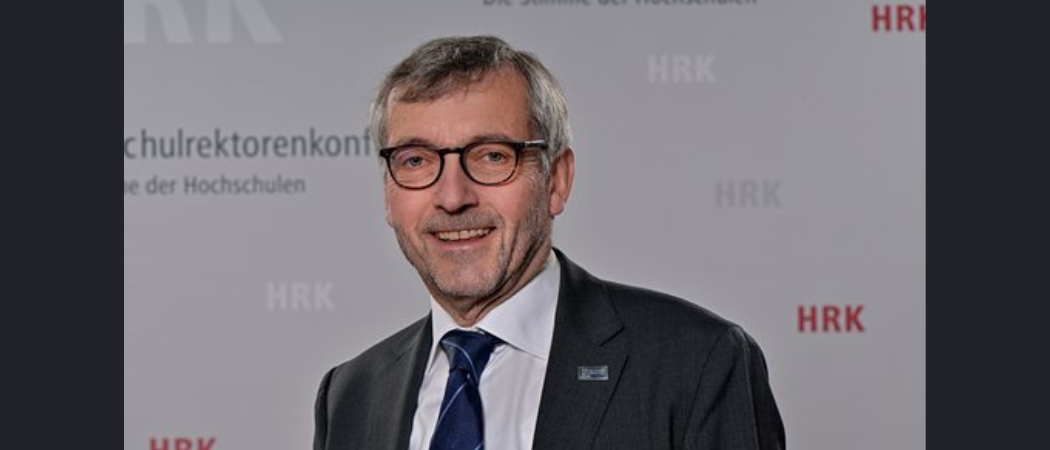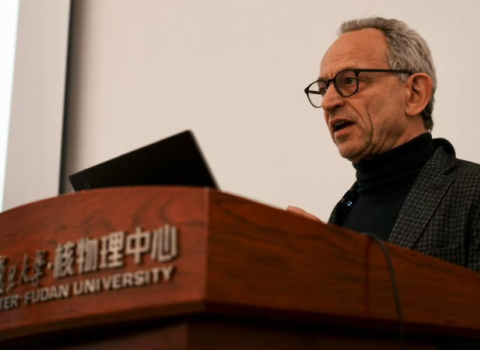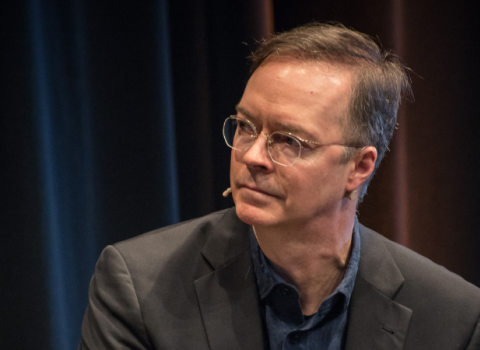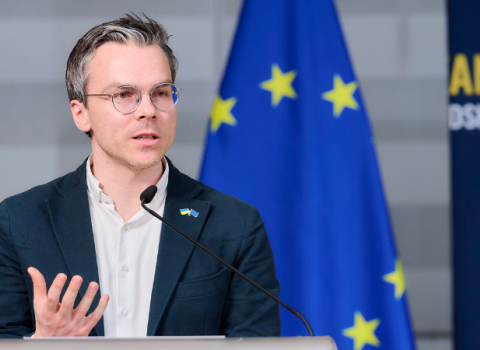Walter Rosenthal, the new president of the German Rectors’ Conference, speaks to Science|Business about Germany’s Chinese research links, the rise of the AfD, and his message for Brussels about Horizon Europe

Walter Rosenthal, head of the German Rectors’ Conference. Photo: HRK
The new head of the German Rectors’ Conference (HRK) has warned against introducing a Canada-style vetting system for research links with China, stressing that collaboration decisions should be ultimately made by academics.
The extent of risky German academic collaboration with China – in some frequent ties with military-linked universities – has been one of the biggest issues facing Germany’s scientists in recent years as geopolitical tensions rise.
Walter Rosenthal, who in May took over as president of the HRK, insisted that German academics act responsibly and are becoming more attentive towards the risks of collaborations, with some stopping new projects when confronted with the risks their links posed.
“Scientists are responsible for what they do, but not alone,” he said, with universities giving them information and advice about potential risks.
Rosenthal rejected the model adopted in Canada in 2021, whereby intelligence agencies have to clear potentially risky collaborations. Security officials have stopped more than 30 projects so far. The state should not “decide whether a project will be conducted or not,” he said.
While there are no immediate plans for a similar vetting system in Germany, pressure is growing on universities to be cannier towards China.
In August, Germany’s science minister, Bettina Stark-Watzinger, told researchers they needed to be more “responsible” with their academic freedom when it came to China ties. This followed the release of the country’s new China strategy, which proposed withdrawing federal funding from projects that risk “knowledge drain” to China.
Rosenthal insists that academics and universities in Germany have wised up to the “ambivalent” relationship Berlin now has with Beijing. “We are getting beyond a naïve approach in general,” he said.
Named and shamed
In January this year, a report from the US-based China expert Jeffrey Stoff named and shamed German universities that had research collaborations with Chinese military universities, including with China’s main hypersonic missile facility.
One of the universities it repeatedly named was the University of Jena, where Rosenthal is rector, in addition to his HRK position. “This was an important publication,” he said, and was discussed by HRK and the executive board at Jena.
The university spoke to the Jena researchers who carried out the collaborations in question. Several of them have now decided not to pursue new research projects with China as a result, Rosenthal said. “My impression is that we are on a good path.”
German universities are also rethinking other ties with China. In July the University of Erlangen-Nuremberg stopped taking Chinese students with scholarships from the China Scholarship Council, following long-running concerns that these stipends contractually force students to remain totally loyal to the Chinese state, and stay in regular contact with the embassy, limiting academic freedom.
As in many other western countries, Confucius Institutes are also under scrutiny. Hamburg and Trier universities have cut ties with their institutes, while Bonn has renegotiated its agreement to better ensure academic freedom.
Rosenthal wants universities to first try to renegotiate contracts with China to try to de-risk these kinds of collaborations, rather than cut them off immediately.
“If that is not satisfactory, then yes, it can be appropriate to stop the specific [CSC scholarships] programme. The same applies to the Confucius Institutes,” he said.
Again, as with research collaborations, these are decisions for the universities, not the state, Rosenthal stressed.
This stands in contrast to the US, for example, where dozens of universities have shut down their institutes under pressure from legislators.
AfD on the doorstep
As rector of Jena, Rosenthal also faces a challenge from authoritarian politics much closer to home.
In Jena’s state of Thuringia – part of former East Germany - the far-right Alternative for Germany (AfD) party is polling at 34%, and nationally it has begun to win mayoral positions in addition to its existing sizable MP cohort. Last week in Leipzig, students launched protests after the university invited AfD MPs to attend its enrolment ceremony, as part of a regular guestlist of local dignitaries.
For German universities, the party is a real problem, warned Rosenthal. “They ignore facts, they delegitimise research, and also attack quite often academic institutions,” he said. The party has also taken aim at specific research areas, such as gender, diversity studies and political extremism.
“We would be rather concerned if the AfD would be part of government and took over responsibility in science,” said Rosenthal.
The party is now so strong in Thuringia that it is actually a drag on recruitment at Jena, he warned. “If you come from abroad, if you come from West Germany, this is something that makes the decision [to accept a job offer at Jena] sometimes difficult. They're somewhat reluctant. The strength of the AfD in the eastern states is a problem,” said Rosenthal.
“It is a problem for all research institutions. And especially I think, for universities. In a way one can say it makes them less attractive.” Like many university cities, left-leaning Jena, once home to several luminaries of German romanticism, is like an “island” in a sea of strong AfD support, he said.
Still, if student groups want to invite AfD speakers onto campus, the university would not stop them, he stressed. “We have to have an open discussion, and we cannot exclude politicians from the AfD from the discussion,” Rosenthal said.
Message for Brussels
With Horizon Europe close to halfway through, and discussions already starting about its successor, Rosenthal has a clear message to Brussels: do not move away from excellence and competitiveness when distributing funds.
He’s in favour of structural funds to, say, build new research facilities in member states not on the scientific cutting edge, but opposes any dilution of competition at the core of the programme, saying, “It would not be good to lower standards to ensure high participation in all programmes for all countries.”
He also wants much better integration of humanities and social sciences research into Horizon projects – a perennial complaint – to boost social innovation.
“The role of the social sciences and humanities is a rather reduced one, there is almost no funding,” Rosenthal said.
He also echoes another well-worn concern about Horizon: the sheer quantity of grant paperwork. “For universities with little application experience, it’s a real challenge in Germany,” he said.
At the German Research Foundation, the process is simple enough for scientists to write proposals themselves. Yet red tape around Horizon grants has spawned an “entire industry” of advisers, with “hundreds and thousands of people making good money” from consultancy, he said.
Meanwhile, German universities are happy with the newly created European Innovation Council grants. “They have this bottom-up character and that should be preserved,” said Rosenthal.





 A unique international forum for public research organisations and companies to connect their external engagement with strategic interests around their R&D system.
A unique international forum for public research organisations and companies to connect their external engagement with strategic interests around their R&D system.